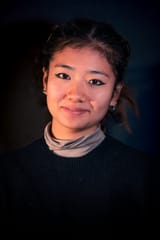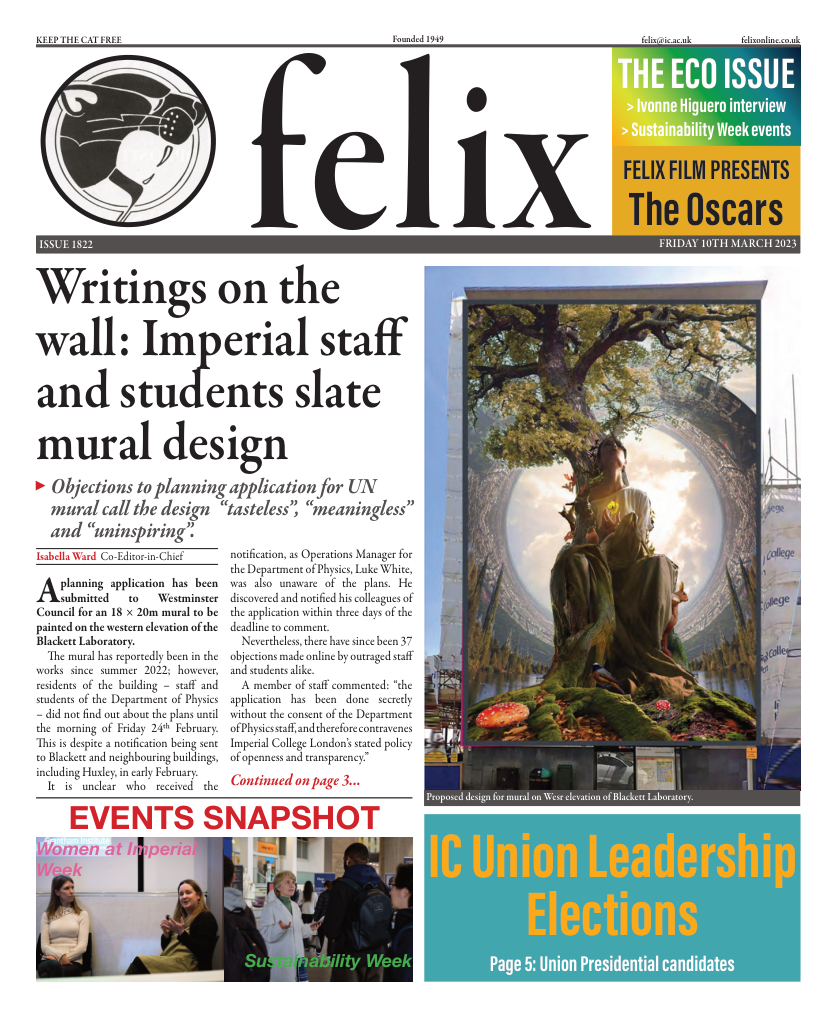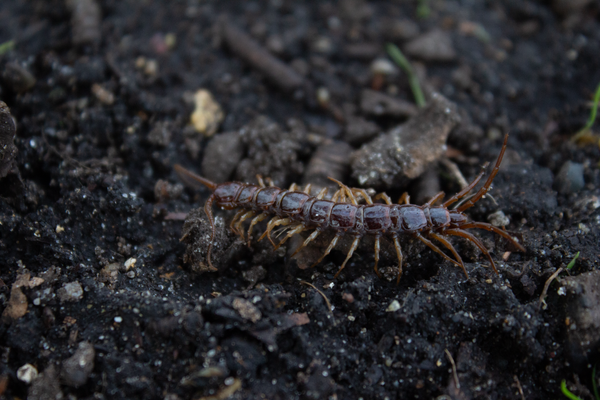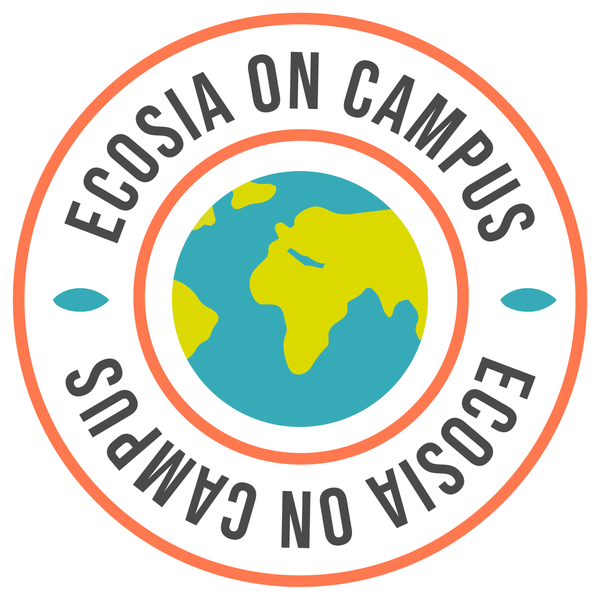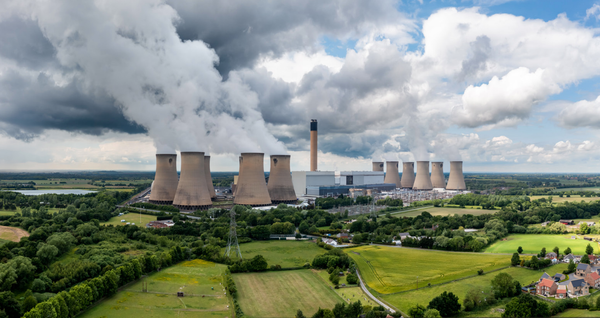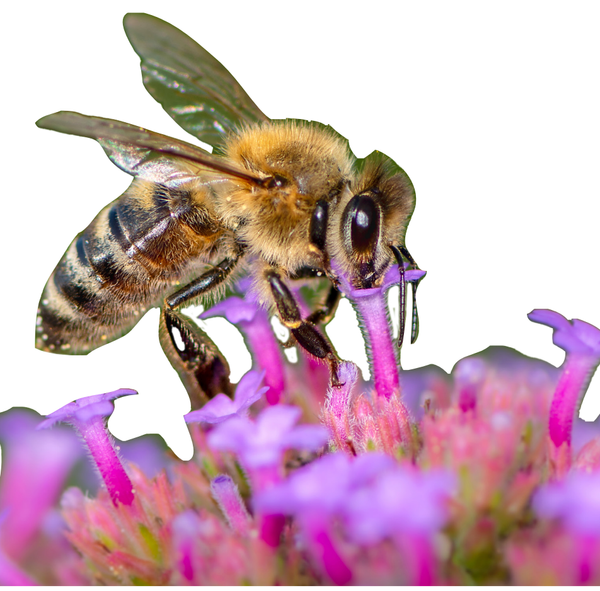CITES at 50: in conversation with Ivonne Higuero
For World Wildlife Day and International Women’s Day, Simran and I spoke to CITES Secretary-General Ivonne Higuero.
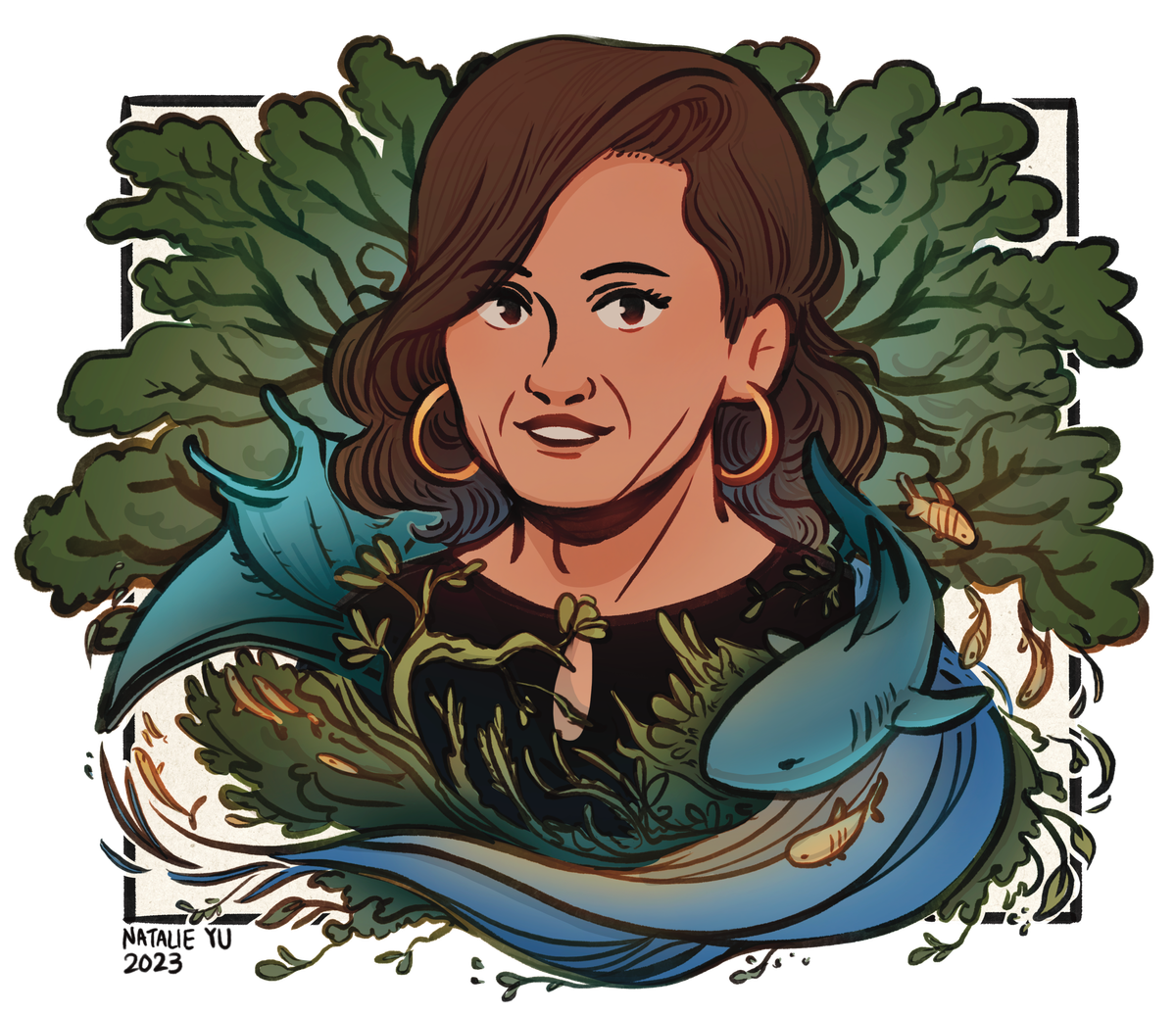
The 3rd of March 2023 was the 50th anniversary of the establishment of the Convention on International Trade in Endangered Species (CITES). One of the most signed UN conventions, CITES is a legally binding agreement ensuring plants and animals can be traded without threatening the species’ survival. We had the pleasure of meeting Ivonne Higuero, the CITES SecretaryGeneral, a few days before she flew to Washington to celebrate this historic day.
Marie: When did your passion for wildlife and sustainable development begin and why did you decided to apply this passion by working for the UN?
Ivonne: When I was in university, I was doing pre-med in the United States. In the United States, you have to take all these other classes [outside your degree major]. So I took a class in ecology and environmental studies and I loved it. I was already thinking [a medical degree] might be difficult because in the United States … it was eight years, and financially it wasn’t very easy. But when I took this [ecology] class I thought – this is great. [We read] a book called Silent Spring by Rachel Carson, about chemicals damaging water and how [aquatic] species were dying. Being in the United States – the Endangered Species Act, the Clean Air Act, and so many things that ... had just happened in the seventies – really made an impression on me when I took that class. I decided to look into the possibility of then getting a higher degree in environmental studies. So in the end, I went to Duke University. They had what they called at the time the School of Forestry and Environmental Studies, and I chose to get a master’s degree in environmental management that has a focus on economics and policy - what we call an ecological economist or an environmental economist. That really led me to look at things internationally.
My first job was at the Organisation of American States in Washington, working with mostly Latin America and the Caribbean, on disaster preparedness. It was something that was a little bit outside of what I had studied. But I said, ‘well, this will give me a flavour of what it’s like to work in the international arena’ – and that was when it became very clear that that’s where my goal was headed. I ended up getting a consultancy [job] working at UNEP, and then later a proper post. Things worked out very well by opening myself up to the possibility of living elsewhere, in Nairobi. I lived there for eight years working for UNEP. Then after those eight years I got a higher-level post here in Geneva, and have stayed in Geneva since then. I moved from UNEP to the United Nations Economic Commission for Europe, and I stayed there five years. Then I was offered this position, so I moved back to UNEP. It’s the Convention Secretariat – which means that we are fairly independent because the parties who have signed the treaty … are the ones really in charge. They take all the decisions and they’re the ones who have to pay for the secretariat, but the Secretariat has to be administered, and the administration is done by UNEP. So that’s how I ended up here.
Marie: Building on your career progression, have you experienced any barriers during your career so far? Such as being a woman in a male dominated political landscape? How did you overcome these types of barriers?
Ivonne: When I first started out in Nairobi, it was very much - and for a long time - that the higher level posts were all with men. [There were] very few women in higher level posts throughout the United Nations, not only in UNEP, and so it seemed more difficult. Also, in general, they were from developed countries ... and so I could see there were going to be some barriers. I have dual citizenship, I’m both Panamanian and American, and so that made a little bit of a difference. But still, the gender aspect - you could see that the majority of the [people] in the lower posts, doing a lot of the heavy work, were women. It took me eight years to be in the post that I was. I’ve risen from P3 to D2 [up five ranks in the UN hierarchy], which is quite a success for a woman from a developing country.
Despite being perfectly knowledgeable about how much I know, and my preparedness and my management skills and all the rest of it, I give credit to the current SecretaryGeneral, Antonio Guterres. He was convinced that during his time as Secretary-General he was going to have equality of the genders in [high level posts]. I think that I wouldn’t have reached this level if it wouldn’t have been for him pushing women and geographic diversity. This Convention Secretariat has only been led by men, and men from developed countries, until I arrived. It is quite an incredible thing that at the end of the day it takes men to join us and to want to make a change. If we didn’t have men who were convinced that gender diversity and equality amongst women is important, it would be much harder [for women to progress at the UN]. I’ve also talked to other women that are having kids, being a mother, having a family – [which] also has a certain impact because you do double jobs. You work in the office and you often go home and work another job, as mother, wife, and caregiver. It’s also financially a burden because … I had to have somebody at home to take care of the children so I could travel [for business]. And ... you can’t say, “no, I can’t go on the mission” if you’re the person with the job, so you have to go. [My son] travelled a couple of times with me when he was a baby, [I was taking him and] paying for my mother to come ... she would watch over him while I was attending the meetings.
Marie: March 3rd marks 50 years since the establishment of CITES. Why was it established and what were its initial goals?
Ivonne: Many people will say this is a very special convention because of the timing of it, when there were very big concerns about the environment in the 70s. It’s an interesting convention because it integrates issues not only about environment and wildlife, but it’s about trade, it’s about development. It’s about regulating a trade that could have an impact on wildlife but not saying “no”, with an understanding that for many countries their natural resources are what they trade in. Of course, if there’s overexploitation something has to be done - the concern was that species were going extinct and endangered because of overexploitation. The other thing that makes [CITES] very interesting is the fact that there’s voting allowed and compliance measures. With a lot of newer conventions everything has to be consensus, and it’s very difficult sometimes to adopt certain things. Here we try for consensus, but if it doesn’t, the parties say, “it goes to a vote”. Very few environmental conventions will have compliance measures. If you’re told with a compliance measure that you can’t trade in that species, no party can trade with you. That’s a huge punishment, so you have an incentive to be able to clean up your act and ensure that the trade that you’re doing is sustainable, legal and traceable. Making sure that wildlife was able to survive in the wild for future generations was really the basis of [CITES] – that trade could go on but not that it would be detrimental to the survival of the species. Those were interesting times, and they were able to adopt a convention which had compliance measures that could be voted on that has existed until now.
Marie: How have the objectives of CITES changed since its initial establishment 50 years ago?
Ivonne: I would say the objectives of the convention haven’t changed at all. There’s mechanisms under the convention to adapt by having resolutions. The meeting of the Conference of the Parties (CoP) happens every 3 years – when they meet, they take decisions and see emerging issues. When we had the CoP in Panama last year, there was a revision to [one] resolution so it’ll say ‘Resolution CoP17, revised CoP19’. And they can make new resolutions. Imagine in the 70s, when things were taken directly from the wild to be used as some sort of commerce. Then [came] the idea of ranching, the idea of captive breeding, artificial propagation. Today we do biotechnology, where you can develop things in a laboratory situation or change the genetic material of plants. The convention has had to keep up with that – they have made tools to register, for example, facilities doing captive breeding. You still have to have permitting even if it’s artificial propagation, even if it’s captive bred. There’s a working group set up to see what’s CITES’ role in biotechnology. All of these tools help to keep up to date with what’s happening.
It’s still not resolved 100% how the [COVID-19] zoonosis happened between animals and humans. There was big talk of pangolins, wet markets, some still say that it might have been something in the lab - it’s still unknown. There’s no doubt that wildlife has something to do with this, so now we have to see what things need to be done to avoid the next pandemic. The International Air Transport Association has specific rules developed working with CITES for the safe transport of animals by air. There has to be some work done by land as well because between countries, you have to be sure - has a veterinarian taken a look at these animals? Are different species being crowded into one cage? The fear is that because of the stress, they’re releasing viruses and eventually it goes to the human. The convention has to adapt, and the parties are addressing that.
Oh, Internet! [It’s] much more difficult to find [people] that open up one [account], close, open up a different one, and illegal trade happens. We have developed tools to find out when these are happening, what kind of steps to take. A lot of those doing wildlife crime are big criminal organisations - the same ones that are doing crime with weapons, human trafficking, drug trafficking. They have the same networks, they’re employing poor people on the ground to take whatever it is that they want. Trade is neither good nor bad, it’s just how you do it. You have to make sure that you have the right regulations for it.
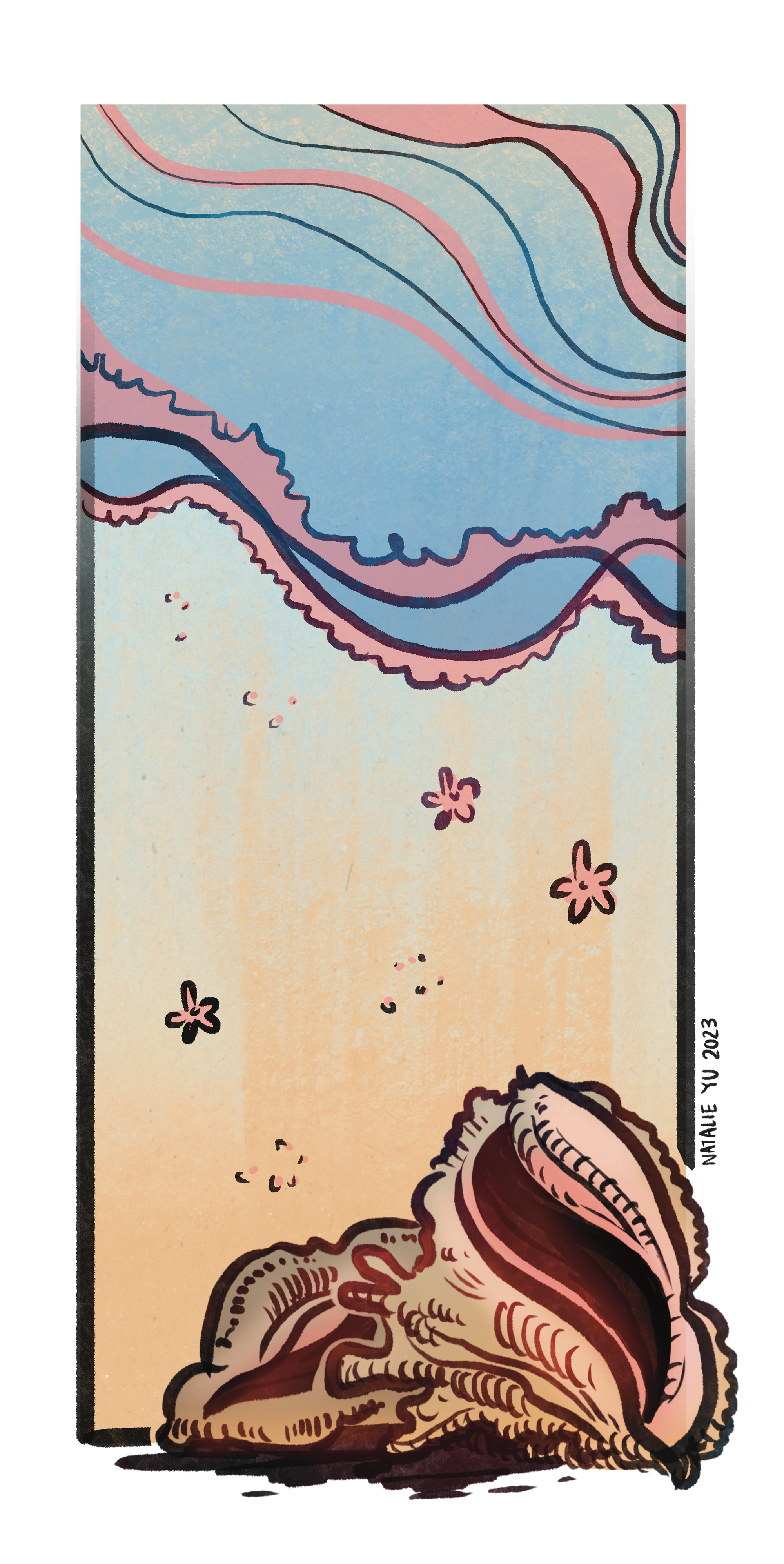
Simran: World Wildlife Day is on March 3rd, and the theme this year is ‘Partnerships for Wildlife Conservation’. What other partnerships does CITES have?
Ivonne: This was a good theme to pick for World Wildlife Day because all along it’s been partnerships. No country can do it alone — they have to work with others, especially when it comes to illegal wildlife trade. If you know there’s something in the shipment, you need to call your colleagues in enforcement and customs authorities. These are the important partnerships that we have as CITES, with INTERPOL, World Customs Organisation, United Nations Office on Drugs and Crime, World Bank … we’re all working together. It’s called the International Consortium to Combat Wildlife Crime.
We’ve just now had to put a ban in Western Africa for the African rosewood, because the scientific document to show how much they can actually trade to make it sustainable, the ‘legal acquisition findings’ to show that all along the value chain this is something that has been obtained legally … those documents didn’t exist. For that kind of work we have to work together with forestry organisations, primariy the Food and Agriculture Organisation (FAO).
We have [worked] with FAO as well on marine species, when a proposal comes through to list this particular marine species. What was very exciting about this last CoP, that was all over the global media, was about the sharks and rays - [previously] most of them needed no permits to be traded. Out of our 184 parties, 38 of them got together to put forward this proposal on sharks and rays. When that proposal comes through, we have the obligation under the convention to go to the FAO because they have the marine experts. They look at all the proposals that deal with marine species and give their scientific opinion. The parties then take information that comes from FAO, and then take the decision whether something is going to be listed.
We have partnerships with the United Nations Environment Program. We work a lot on livelihoods, indigenous people, who are really in the front lines because they live right next to the habitats of these animals and plants. We have to work with these communities to make sure that they have an incentive to take care of those habitats, that there’s no poaching of the animals, cutting down of trees. I’m the chair now of the Collaborative Partnership on Sustainable Management of Wildlife … 14 organisations with whom we partner, and all of them have something to do with wildlife management. It’s trying to find ways in which using wildlife is sustainable, because for fishing communities and many who live next to animals, they are dependent on them for their food. Even wild meat (what used to be called bushmeat), if done sustainably for those communities - we have to be able to work with them to avoid disease, but also to avoid the overexploitation of these species. If you have it at the source and you’re using it as your protein, there’s usually no overexploitation. But once it starts becoming a luxury item, people from outside come to take those species - that’s when the problems start. So yes, partnerships are absolutely essential.
Marie: How are you planning to celebrate World Wildlife Day?
Ivonne: We’re very proud to say that we are going back to where the treaty was signed, Washington, D.C., and we’re going to have the celebration with the United States government. We will have the secretary of the interior, Miss Deb Haaland, who is going to be speaking at the opening. She’s an indigenous person, so I’m very proud that I’m going to get to meet her. We’re [also going to have speakers] from Switzerland, because when you create a treaty there’s a depository government that keeps the treaty — Switzerland is a depository government for the CITES treaty. But the most important thing is that we’re going to have those who have engaged in partnerships tell us how [those partnerships] have been successful. We’re going to have somebody from the Caribbean, who’s going to speak about Queen Conch – a marine species very popular within the Caribbean and [among] people from the Caribbean living outside the Caribbean. It was very much endangered … overexploited, and almost disappearing. So working with this organisation of eastern Caribbean states, the fishers, the United Nations Conference on Trade and Development – slowly, things are getting better. They’re putting in legislation that they didn’t have before about wildlife. That partnership has helped improve the situation, so they’re going to be speaking. Then we’ll have a panel speaking about the issue of financing. The private sector hasn’t been that notorious in terms of contributing to conservation, except as charity, [because] how can you get something back when you invest in wildlife? There’s a new bond – originally called the Rhino Bond, but it’s now about wildlife in general – to guarantee that if things go well in terms of the population of the species increasing, the investor will get some profits. Climate change gets a lot of investment - much more than biodiversity - so how can we use that to convince them to invest in biodiversity? This is another discussion that we’re going to have to have that day.
We have representatives from Singapore and Malaysia coming to speak about the work that they have been doing to engage youth in the cause of CITES and conservation. CITES is now developing a youth network - we want to be able to bring youth on board because all this work that we’re doing is for the youth. Alongside that, we have things that normally happen on Wildlife Day. One is the Jackson Wild Film Showcase, [where] there’s prizes given to the best films talking about wildlife conservation. And there’s the International Fund for Animal Welfare painting contest, and there’s a painting selected for a prize also talking about wildlife conservation. It’s going to be quite a packed day, but very interesting.
Marie: Are you optimistic about the future of wildlife conservation? And how can students get involved in contributing to this?
Ivonne: We have to remain optimistic - we hear a lot of bad news every day. Youth have the biggest worries, and you’re saying ‘what are these people doing to our planet?’ Not only are we in difficult times when we talk about the triple planetary crisis - pollution, climate change, the biodiversity crisis - we’re also in a difficult geo-political situation with the war going on right now. It’s hard to remain optimistic when these things are happening, but we must remain optimistic. And that’s why it’s good to hear these stories about how partnerships have helped. I can tell you a number of things that have been done under CITES with populations who were on the brink - vicuña, crocodiles, snowdrop. Getting communities involved, working with the governments, including legislation … all of these things have made a difference and brought some species back. It’s also changing human habits. We don’t need illegal products - we have to learn to reduce the demand for illegal products, and students can help us with that. Spread the word - pangolin scales are not going to cure any diseases, rhino horn is not going to cure any diseases. It’s the same as a fingernail. I remain optimistic for the future because I know the youth is active. You have to put pressure on us. You have to say what kind of future you would like to have and communicate that loudly. Make sure that you’re heard when decisions are being taken in your countries. With development, [like] building new highways, we have to be careful that it’s not going to have an impact on wildlife.
Right now, it’s a very polarised environment of those who are against any type of wildlife trade, and those who have a different approach to wildlife trade. Emotions can run high, but it’s different for a person who’s sitting in an apartment on Fifth Avenue in Manhattan than a person who’s sitting next to the Amazon River who has to think about how they’re going to put food on their plate every single day. That’s why you have to have empathy - taking tough decisions, but finding ways in which those tough decisions that have to be taken can be ameliorated and softened by giving alternative livelihoods. If you have to take it from the wild, let it be for the people that live there, or at least have a fair compensation.

